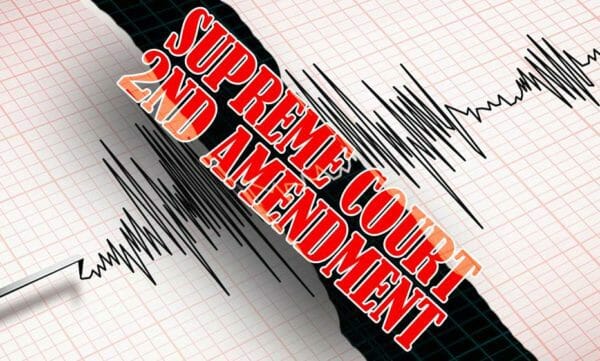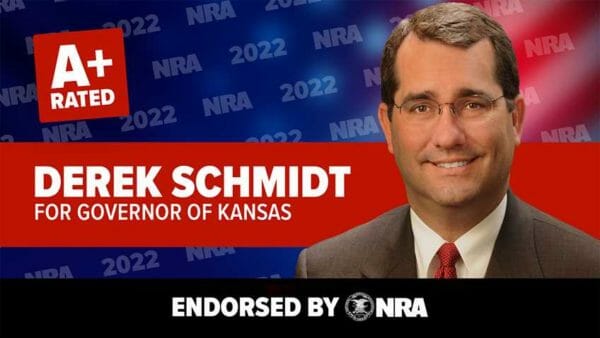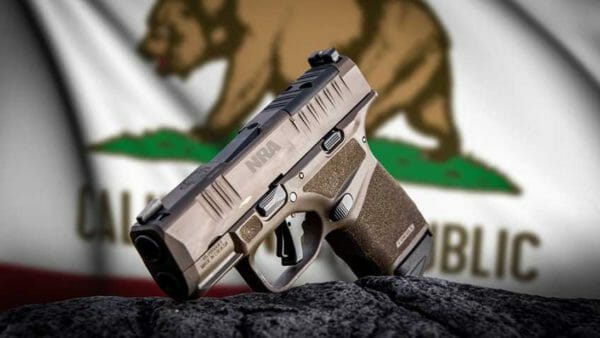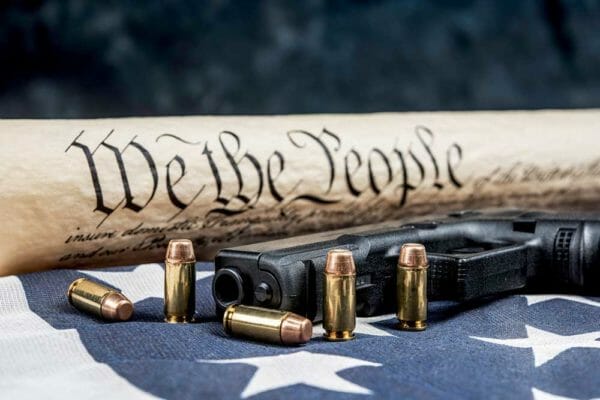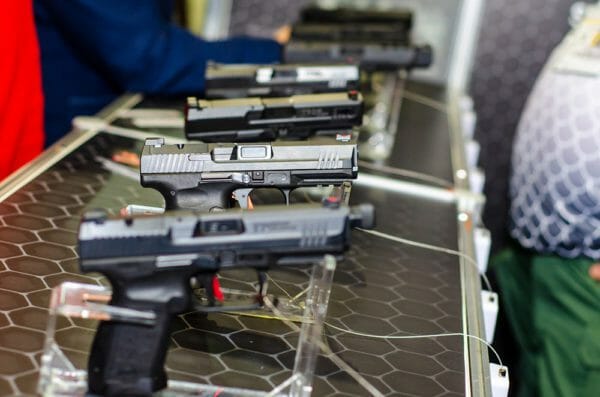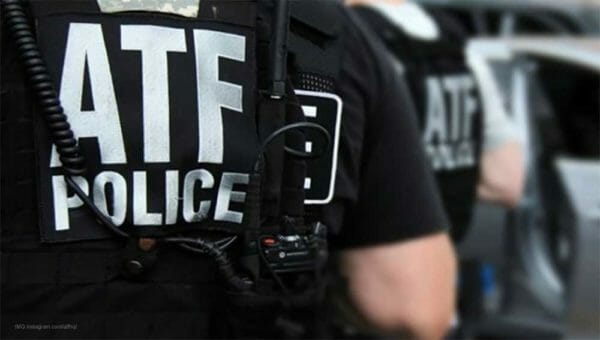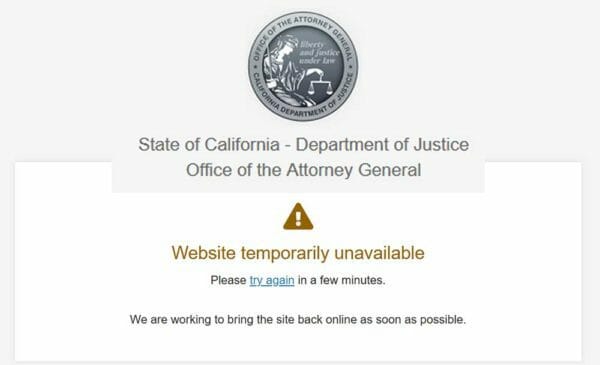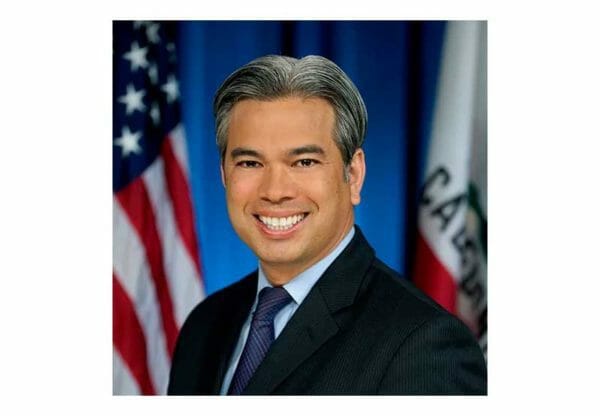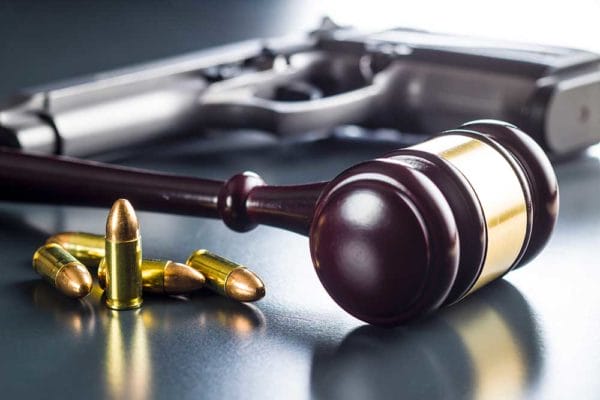
U.S.A. -(AmmoLand.com)- When Justice Clarence Thomas observed in the final lines of his landmark majority opinion striking down New York State’s unconstitutional “just cause” requirement for obtaining a concealed carry permit that the right to bear arms is not a “second class right,” how many other state and local laws placing restrictions on gun owners could ultimately be affected?
Thomas’ words, say Second Amendment activists, should be carved in stone:
“The constitutional right to bear arms in public for self-defense is not ‘a second-class right, subject to an entirely different body of rules than the other Bill of Rights guarantees.’ We know of no other constitutional right that an individual may exercise only after demonstrating to government officers some special need. That is not how the First Amendment works when it comes to unpopular speech or the free exercise of religion. It is not how the Sixth Amendment works when it comes to a defendant’s right to confront the witnesses against him. And it is not how the Second Amendment works when it comes to public carry for self-defense.”
How far can that go? With a 6-3 conservative majority now on the high court, it is possible the country’s gun owners are on the verge of finding out.
Possibly one of the first targets for reform is the requirement in Illinois to have a Firearm Owner’s Identification (FOID) card. “To legally possess firearms or ammunition, Illinois residents must have a Firearm Owners Identification (FOID) card, which is issued by the Illinois State Police to any qualified applicant,” the state police say.
Arguably one of the most egregiously restrictive states is New Jersey, where—according to the New Jersey Second Amendment Society—people must obtain a “firearms purchaser identification card” or “a permit to purchase a handgun.” Applicants waive their right to confidentiality, the local police conduct a background check, consent to a mental health records search and then wait, possibly for a long time.
That’s why Carol Bowne was fatally stabbed by an ex-boyfriend in June 2015. Her application gathered dust on the desk of the Berlin Township police chief. Bowne’s case has become a textbook example of what can happen when bureaucracies hold sway over a civil right.
In North Carolina, “To purchase a handgun or pistol…either a non-expired North Carolina Pistol Purchase Permit or a copy of a non-expired North Carolina Concealed Carry Permit is required,” according to the Triangle Shooting Academy.
In Minnesota, according to the Ramsey County Sheriff’s Office, a permit is required for handgun transfers (possession of a valid Minnesota permit to carry constitutes a permit to purchase). If someone doesn’t have a carry permit, they must fill out a Minnesota Uniform Firearm Application/Receipt Permit to Purchase/Transfer. “Submit the application to your local police chief, or if your municipality does not have a police department, to your county’s sheriff. The law enforcement agency will conduct a series of background-related checks to assure you meet eligibility requirements established in state law.”
Nebraska “requires a prospective purchaser to first apply for and receive a handgun purchase certificate from the local chief of police or sheriff,” according to American Conceal and Carry.
“With some exceptions, individuals cannot purchase, lease, rent, or receive a transfer of a handgun in Nebraska without this certificate,” the group says.
Citizens in Hawaii are burdened with a complicated process, as explained by Hawaii Police.
“If you wish to acquire a handgun or wish to acquire a shotgun or rifle for the first time,” the department says, “you must be at least 21 years old and a United States citizen. You must apply for a permit to acquire a firearm. You must make an appointment at any police station island-wide in order to apply for a permit to acquire a firearm. See the list of police stations and phone numbers below. If you were not born in the United States, you would need to provide proof of U.S. citizenship.
Michigan is another state requiring citizens to take steps in order to exercise a constitutional right. In this state, according to Usgunclasses.com, “a person ‘shall not purchase, carry, or transport a pistol in this state without first having obtained a license for the pistol,’ as prescribed in MCL 28.422. These licenses shall be obtained by the local police agency. If the city, township, or village does not have an organized police agency, the license shall be obtained by the county sheriff’s department.” The exception is for people with concealed carry licenses. They have to obtain a “Pistol Sales Record… any time he or she purchases or otherwise acquires a pistol, pursuant to MCL 28.422a.”
Maryland is another state with Draconian restrictions that could be ripe for challenge. As noted on the Heritage Training Center website, “In order to purchase a handgun in Maryland as of October 1, 2013, the buyer must possess a valid Handgun Qualification License (HQL), unless otherwise exempt.”
We consult with the Giffords Law Center for the lowdown on Connecticut. The Giffords website notes, “In Connecticut, a person may not purchase or receive a handgun unless he or she holds a valid permit to carry a handgun, a valid permit to sell a handgun, or a valid handgun eligibility certificate.”
Neighboring Massachusetts, according to the state government website, is also restrictive. “Massachusetts residents 15 years and older who wish to possess, carry, and transport firearms, ammunition, and feeding devices are required to have a firearms license. Firearms licenses are issued by municipal police departments.”
And in tiny Rhode Island, according to gunlaws101.com, “purchasing a long gun requires a ‘Purchase of a Shotgun or Rifle Application Form’, and has a 7-day waiting period for the firearm. Handguns also require a ‘Purchase of a Shotgun or Rifle Application Form’, but they also require a training course. The applicant needs to complete either a hunter safety course, a pistol safety course (given by the Department of Environmental Management (DEM)) and pass the DEM test, or they must pass the DEM’s handgun safety test.”
There are, by some estimates, 20,000 to 22,000 gun laws in this country. Whether the Thomas ruling is signaling it is time for local activists to start challenging those laws remains to be seen. But the Thomas opinion could put at least some of them in jeopardy, especially when they place burdens in the way of exercising Second Amendment rights.
Thomas did something else with his 63-page opinion. He signaled the possible outcome of future litigation regarding whether so-called “assault weapons” are protected. Quoting the 2008 Heller ruling, Thomas noted, “We have already recognized in Heller at least one way in which the Second Amendment’s historically fixed meaning applies to new circumstances: Its reference to ‘arms’ does not apply ‘only [to] those arms in existence in the 18th century.’ 554 U. S., at 582. ‘Just as the First Amendment protects modern forms of communications, and the Fourth Amendment applies to modern forms of search, the Second Amendment extends, prima facie, to all instruments that constitute bearable arms, even those that were not in existence at the time of the founding.” Ibid. (citations omitted). Thus, even though the Second Amendment’s definition of ‘arms’ is fixed according to its historical understanding, that general definition covers modern instruments that facilitate armed self-defense. Cf. Caetano v. Massachusetts, 577 U. S. 411, 411–412 (2016) (per curiam) (stun guns).”
Translation: People who insist the Second Amendment only applies to muskets are delusional.
There is a case challenging the Maryland ban on so-called “assault weapons” now awaiting a high court decision on whether to review that case. Twenty-five state attorneys general have submitted an amicus brief supporting the case, filed by the Second Amendment Foundation and Citizens Committee for the Right to Keep and Bear Arms
As officials in New York and California are demonstrating with their machinations to get around the New York right-to-carry decision, this victory hasn’t closed doors on anti-gunners. They are a determined lot, and their efforts virtually assure the fight over Second Amendment rights is far from over.
About Dave Workman
Dave Workman is a senior editor at TheGunMag.com and Liberty Park Press, author of multiple books on the Right to Keep & Bear Arms, and formerly an NRA-certified firearms instructor.

from https://ift.tt/YgLAiz8
via IFTTT




